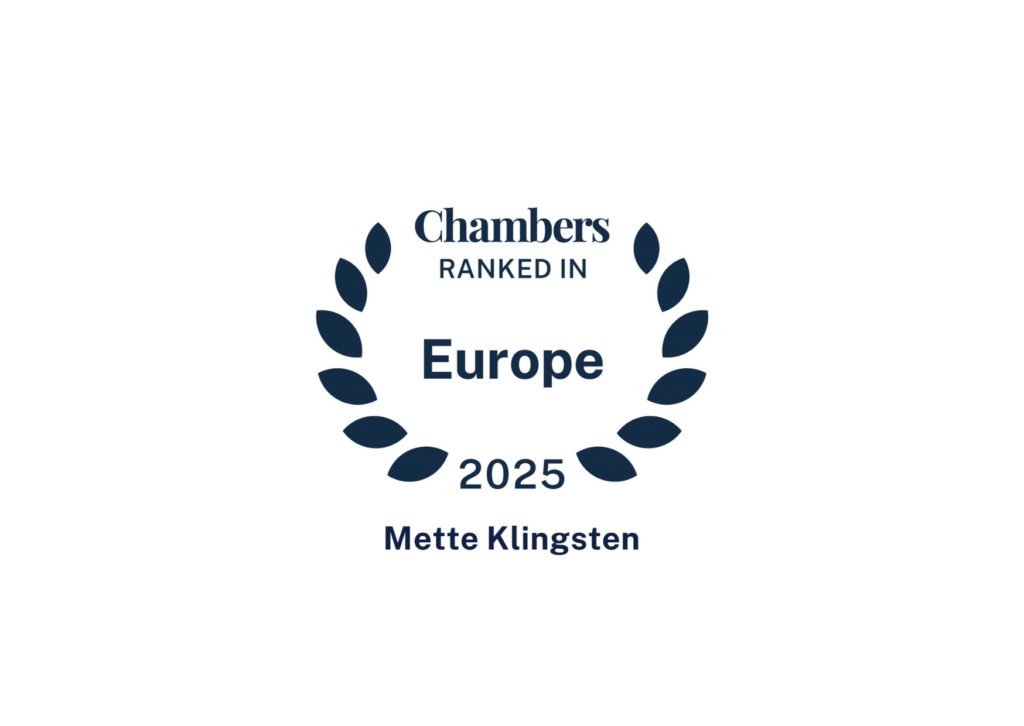Employee or self-employed? – The common definition of employee in Danish and EU law

The boundary between employees and self-employed individuals is a cornerstone of employment law. This is because only employees are covered by central employment laws – including the Salaried Employees Act, the Holiday Act, the Working Hours Act and the Employment Contracts Act – and in many cases also by collective agreements. An incorrect classification can […]
Sick leave following cosmetic surgery

Illness is generally considered a legal absence and therefore gives employees the right to be absent from the workplace. Salaried employees are entitled to full pay during illness and the same applies to many employees covered by a collective agreement. However, this rule is not without exceptions, because if the illness is self-inflicted – caused […]
Mette Klingsten is ranked by Chambers in Europe Guide 2025

We are thrilled to announce that Mette Klingsten has been ranked as a leading lawyer in employment law by the esteemed Chambers & Partners in their 2025 European Guide. This marks Mette’s 19th year as a ranked lawyer by Chambers. Chambers Europe evaluates the leading laywers and law firms throughout Europe, aiding companies and individuals […]
New AI skill requirements for employees

On 2 February 2025, parts of the AI Regulation entered into force. The rules imply that employers must ensure that an adequate level of AI skills is upheld for all employees involved in the operation of the organisation or the use of an AI system. According to Article 4 of the AI Regulation (Regulation (EU) […]
The Advocate General in favor of complete annulment of the Minimum Wage Directive

On 14 January 2025 the Advocate General delivered an opinion on the action for annulment by the Danish Government (and supported by Sweden) seeking the annulment of the Minimum Wage Directive. The Advocate General proposes that the Directive be annulled in its entirety.
New year – new employment related rates

As we start the new year employers should be aware of new rates that apply both in connection with taxable rates, other employee benefits and work and residence benefits. This article sets out a summary of the main provisions.
UK introduces pre-travel authorisation requirements

The UK has introduced new rules for individuals travelling to the UK, meaning that visitors from 48 countries will have to apply for an electronic travel authorization (ETA) prior to travel to the UK.
New law on gender balance adopted

On 12 December 2024, the Danish Parliament adopted legislation regarding gender distribution in management boards of large listed limited companies (the Gender Balance Act). The Act implements the Gender Balance Directive of November 2022, which aims to promote a more equal gender distribution among directors of listed companies. The Gender Balance Act will mean that the largest listed companies will now be subject to new and stricter require-ments in relation to ensuring an equal gender distribution among management members. The Act enters into force on 28 December 2024 and takes effect for the financial year beginning on or after 1 January 2025.
Supreme Court rules that no compensation is payable when an employee terminates the employment

In a judgment of 6 December 2024, the Supreme Court ruled that a secretary who resigned from his position due to the employer’s failure to pay salary was not entitled to compensation for unfair dismissal pursuant to section 2(b)of the Salaried Employees Act.
Danish Parliament adopts bill imposing stricter requirements for posting foreign employees in Denmark

On 28 November 2024 the Danish Parliament passed a bill tightening the requirements for foreign companies posting employees in Denmark. A new requirement of presentation of identification will enter into force on 1 January 2025, while additional requirements in connection with registration in RUT will enter into force on 1 January 2026.